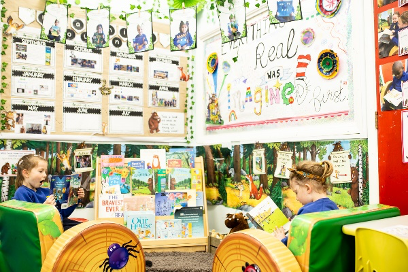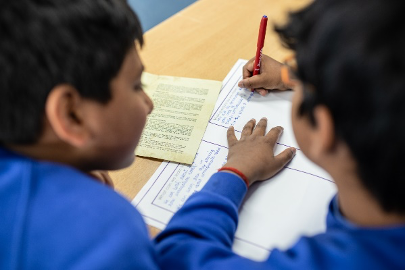English


Reading
At Beecholme, our aim is to develop confident and passionate readers. The building blocks for success in Reading begin with daily, high quality Phonics teaching in EYFS, which is delivered through our Little Handle programme. As our pupils move through the school, they are able to choose from a wide selection of banded books that match their reading ability and their interests. Children are supported to develop their skills of prosody and expression through individual and group reading sessions.
We use a whole-class approach in the teaching of Reading. This allows us to develop specific reading skills through challenging texts, give children the chance to delve deeply into vocabulary and participate in discussion and debate.
It is vital to us that children develop a love for reading which we encourage through weekly reading for pleasure sessions, visits to the school library, book sales and other special reading events.
Our teachers share books with their class daily. Each year group reads range of up-to-date recommended books which include new releases, chosen classics, books from well-known authors, picture books, poetry and non -fiction texts.
Speaking and Listening
Our aim is for children to learn to communicate their thoughts, ideas and opinions clearly and succinctly, as well as to listen to and reflect on the ideas of others. We support pupils in developing their confidence and building up their vocabulary across the curriculum. From an early age, the children are encouraged to participate in a range of activities such as drama and role-play. Older pupils develop their skills in presentation, discussion and debate.
Writing
Quality texts, films, artefacts and real purposes for writing feature at the heart of our writing curriculum. Texts are chosen for their ability to inspire writing, follow the interests of the children or complement the wider curriculum.
We aim to develop pupils’ competence in the accuracy of grammar, punctuation and spelling and the structure of text composition. Children are taught the skills of planning for an extended piece of writing, organising their work coherently and the processes of evaluation and editing.
English is celebrated with different whole-school events throughout the year such as our termly ‘Take One Book’ week, Celebration of Poetry and cultural literature events.
